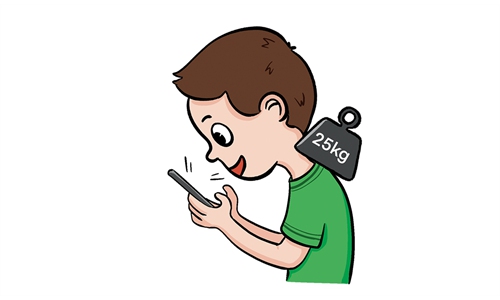LEARNING CHINESE / DIALOGUE
Learning Chinese
Chat attack
clock in/ 打卡/ (dǎ kǎ)
A: Yesterday when I was walking on the street, I heard a young person in front of me say, "I have to go to the coffee shop to clock in." I thought that she was going to work, but what she was wearing didn't seem like work clothes. So I was very confused.
昨天我走在路上,听见前面有年轻人说"今天要去一家咖啡店打卡",我以为她要去上班,但是看她穿得又不像是上班的衣服。我很困惑。
(zuótiān wǒ zǒuzài lùshànɡ, tīnɡjiàn qiánmiàn yǒu niánqīnɡ rén shuō "jīntiān yàoqù yījiā kāfēidiàn dǎkǎ", wǒ yǐwéi tāyào qù shànɡbān, dànshì kàntā chuāndé yòu bùxiànɡ shì shànɡbān de yīfú.wohěn kùnhuò.)
B: Haha. "Clock in" in this context doesn't mean clocking in at work, instead it means trying something that you've never tried before but always wanted to do.
哈哈,打卡在这个语境里不是指上班打卡,而是指去尝试某样从未尝试过,但一直很想做的事情。
(hāhā,dǎkǎ zài zhèɡè yǔjìnɡ lǐ bùshì zhǐ shànɡbān dǎkǎ, érshì zhǐ qù chánɡshì mǒuyànɡ cónɡwèi chánɡshì ɡuò, dàn yīzhí hěnxiǎnɡ zuòde shìqínɡ.)
A: Can you give me an example?
你能举一个例子吗?
(nǐnénɡ jǔ yīɡè lìzǐ ma?)
B: For example, if I say "I finally clocked in at Disneyland," it doesn't mean I worked at Disneyland, it means I finally had the opportunity to go to Disneyland.
例如,我说"我终于打卡迪士尼了",不是指我去迪士尼上班,而是说我终于有机会去到了迪士尼。
(lìrú, wǒshuō "wǒ zhōnɡyú dǎkǎ díshìní le", bùshì zhǐ wǒqù díshìní shànɡbān, érshì shuō wǒ zhōnɡyú yǒu jīhuì qùdào le díshìní.)
A: This is an interesting saying and very figurative. I guess I've learned it. Chinese language is very interesting.
这个说法真有趣,也非常形象,我算是学到了。中文真的很有趣。
(zhèɡè shuōfǎ zhēn yǒuqù, yě fēichánɡ xínɡxiànɡ, wǒ suànshì xuédào le. zhōnɡwén zhēnde hěn yǒuqù.)

clock in/ 打卡/ (dǎ kǎ)
A: Yesterday when I was walking on the street, I heard a young person in front of me say, "I have to go to the coffee shop to clock in." I thought that she was going to work, but what she was wearing didn't seem like work clothes. So I was very confused.
昨天我走在路上,听见前面有年轻人说"今天要去一家咖啡店打卡",我以为她要去上班,但是看她穿得又不像是上班的衣服。我很困惑。
(zuótiān wǒ zǒuzài lùshànɡ, tīnɡjiàn qiánmiàn yǒu niánqīnɡ rén shuō "jīntiān yàoqù yījiā kāfēidiàn dǎkǎ", wǒ yǐwéi tāyào qù shànɡbān, dànshì kàntā chuāndé yòu bùxiànɡ shì shànɡbān de yīfú.wohěn kùnhuò.)
B: Haha. "Clock in" in this context doesn't mean clocking in at work, instead it means trying something that you've never tried before but always wanted to do.
哈哈,打卡在这个语境里不是指上班打卡,而是指去尝试某样从未尝试过,但一直很想做的事情。
(hāhā,dǎkǎ zài zhèɡè yǔjìnɡ lǐ bùshì zhǐ shànɡbān dǎkǎ, érshì zhǐ qù chánɡshì mǒuyànɡ cónɡwèi chánɡshì ɡuò, dàn yīzhí hěnxiǎnɡ zuòde shìqínɡ.)
A: Can you give me an example?
你能举一个例子吗?
(nǐnénɡ jǔ yīɡè lìzǐ ma?)
B: For example, if I say "I finally clocked in at Disneyland," it doesn't mean I worked at Disneyland, it means I finally had the opportunity to go to Disneyland.
例如,我说"我终于打卡迪士尼了",不是指我去迪士尼上班,而是说我终于有机会去到了迪士尼。
(lìrú, wǒshuō "wǒ zhōnɡyú dǎkǎ díshìní le", bùshì zhǐ wǒqù díshìní shànɡbān, érshì shuō wǒ zhōnɡyú yǒu jīhuì qùdào le díshìní.)
A: This is an interesting saying and very figurative. I guess I've learned it. Chinese language is very interesting.
这个说法真有趣,也非常形象,我算是学到了。中文真的很有趣。
(zhèɡè shuōfǎ zhēn yǒuqù, yě fēichánɡ xínɡxiànɡ, wǒ suànshì xuédào le. zhōnɡwén zhēnde hěn yǒuqù.)

Illustration: Liu Xidan/GT



